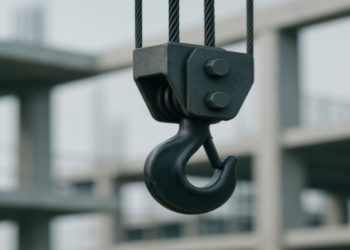Dive into our comprehensive mini guide for buying property in Dubai. Discover key insights on Dubai’s property market trends, eligibility, steps in the buying process, and financial considerations.
Your Essential Guide to Real Estate Investment in Dubai
Kickstarting Your Journey
Dreaming about owning a piece of the luxurious Dubai real estate? This article is your treasure map! Let’s walk you through the ins and outs of property buying in the ‘City of Gold.’ We’re covering everything from understanding the market dynamics to financial considerations. Excited? Let’s get started!
A Snapshot of Dubai’s Real Estate Landscape
The Big Picture
Dubai’s real estate sector is a vibrant kaleidoscope, packed with an array of property types. From swanky apartments to regal villas, the market is as diverse as it is exciting. But how does this help you as a buyer?
Keeping Up With the Trends
It’s simple. Being aware of the latest market trends can help you make strategic buying decisions. For instance, did you know that there’s been a surge in demand for affordable housing lately?
Who Can Buy a Home in Dubai?
Residents and Non-Residents
The beauty of Dubai’s property market is its inclusivity. Regardless of whether you’re a local or an expat, you have the green light to own a home in this cosmopolitan city. Foreigners were given the right to buy property in certain areas of Dubai in 2002, breaking new ground in the real estate industry.
The Freehold vs Leasehold Debate
This is an important distinction. Owning a freehold property gives you complete ownership rights, land included. Leasehold, on the other hand, is more of a long-term rental agreement, typically lasting for 99 years.
The Home-Buying Procedure in Dubai
Location is Everything
It’s the golden rule of real estate – location matters. But how do you pick a spot in a city that’s full of gems?
Top Picks in Dubai
Well, some neighborhoods that continually pull in investors are Dubai Marina, Downtown Dubai, Palm Jumeirah, and Jumeirah Lakes Towers. Each of these areas has its own unique allure, so think about your lifestyle and preferences when deciding.
Seeking Out a Trustworthy Realtor
Don’t underestimate the value of a good real estate agent. They can give you valuable insights, help with viewings, and streamline the buying process for you.
Inspecting and Choosing Your Dream Property
This is where the fun begins – property viewing! Keep your must-haves and nice-to-haves list at hand and compare every property you visit.
The Paper Trail: Legalities and Documentation
And of course, there’s the paperwork. Make sure all documents are accurate and legal. Engage a lawyer if you feel the need; it’s better to be safe than sorry.
It’s All About the Money
Breaking Down the Costs
The price tag is just the beginning. Don’t forget to factor in additional costs like maintenance fees, utility bills, and property tax.
Examining Your Financing Options
Unless you’re planning a 100% cash purchase, you’ll need to explore your mortgage options. Remember, different banks offer different deals, so take your time to compare.
Wrapping Up
Buying a property in Dubai can feel like a marathon, but with the right guidance, it can be a thrilling journey. We hope this guide helps clarify the process, whether you’re a novice homebuyer or a seasoned investor. Remember, research is your best friend, choose wisely, and most importantly, enjoy the process!
FAQs: Your Questions Answered
- Can foreigners purchase property in Dubai? Absolutely, foreigners can buy property in designated areas in Dubai.
- What are freehold and leasehold properties? Freehold gives total ownership rights, including the land. Leasehold is more like a long-term rental agreement.
- What are some hotspots for buying property in Dubai? Top picks include Dubai Marina, Downtown Dubai, Palm Jumeirah, and Jumeirah Lakes Towers.
- Do I need a real estate agent to buy property in Dubai? While it’s not a must, it’s highly recommended to navigate the market and legalities.
- What additional costs should I consider when buying property in Dubai? Consider maintenance fees, utility bills, property tax, and financing options in addition to the property price.
David Prior
David Prior is the editor of Today News, responsible for the overall editorial strategy. He is an NCTJ-qualified journalist with over 20 years’ experience, and is also editor of the award-winning hyperlocal news title Altrincham Today. His LinkedIn profile is here.




![7 Best POS Software in the UK [2026 Edition]](https://todaynews.co.uk/wp-content/uploads/2026/02/7-Best-POS-Software-in-the-UK-2026-Edition-360x180.png)








































































